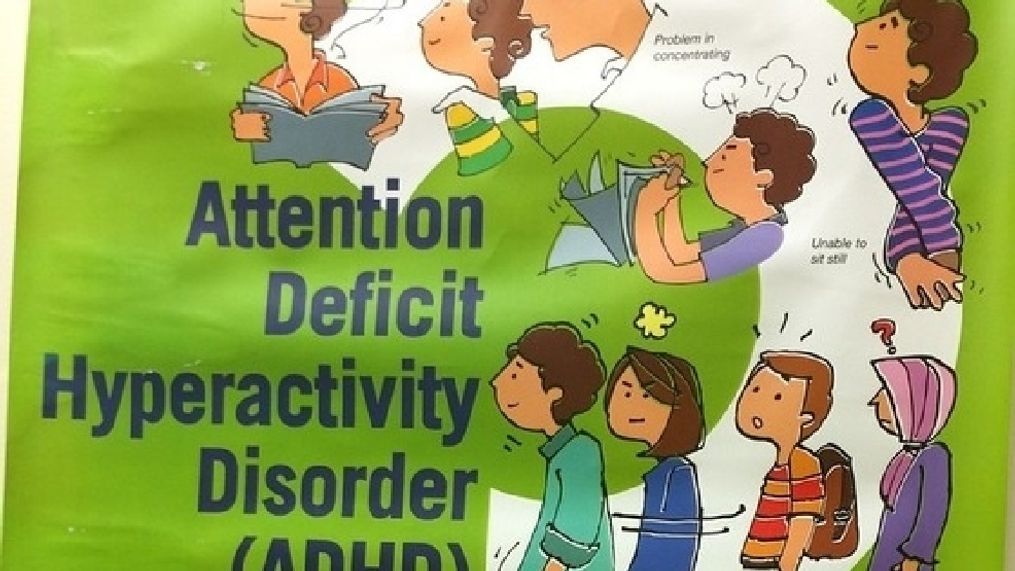Is Group Support The Key To Effective ADHD Management?

Table of Contents
The Unique Challenges of Living with ADHD
ADHD, or Attention-Deficit/Hyperactivity Disorder, is characterized by a persistent pattern of inattention, hyperactivity, and impulsivity. These core symptoms manifest differently in individuals, but the resulting struggles are often profound. Beyond the difficulties in focusing and staying organized, individuals with ADHD frequently face significant emotional and social challenges.
- Difficulties with organization and time management: Simple tasks can feel overwhelming, leading to missed deadlines, procrastination, and a constant sense of being behind.
- Challenges with focus and concentration: Maintaining attention during conversations, lectures, or work tasks can be incredibly difficult, leading to frustration and decreased productivity.
- Impulsive behavior leading to negative consequences: Acting without thinking can result in regrettable decisions, strained relationships, and financial difficulties.
- Social difficulties and relationship challenges: Misinterpretations, impulsivity, and difficulty with social cues can strain relationships with friends, family, and colleagues.
- Low self-esteem and feelings of inadequacy: The constant struggle with ADHD symptoms can lead to feelings of failure, inadequacy, and low self-worth.
These challenges highlight the need for comprehensive and supportive interventions, making effective ADHD management a multifaceted endeavor. Understanding the impact of ADHD on various aspects of life is crucial in developing tailored coping strategies.
How Group Support Addresses ADHD Challenges
Group support offers a unique and powerful approach to managing ADHD. It provides a safe and understanding environment where individuals can connect with others who share similar experiences. This shared understanding fosters a sense of belonging and reduces feelings of isolation, a common struggle for many with ADHD.
- Reduced feelings of isolation and loneliness: Connecting with others who "get it" is incredibly validating and helps alleviate the sense of being alone in one's struggles.
- Development of coping mechanisms and strategies: Sharing experiences and learning from others provides a wealth of practical strategies for managing ADHD symptoms.
- Improved self-esteem and confidence: Realizing that others face similar challenges and have found ways to cope can significantly boost self-esteem and confidence.
- Learning from others' successes and challenges: Hearing about others' successes and how they've overcome obstacles offers inspiration and motivation.
- Increased motivation and accountability: The support and encouragement from fellow group members can significantly increase motivation and promote accountability in achieving personal goals.
The power of peer support within the ADHD community cannot be overstated. It's a crucial element in building resilience and developing effective long-term coping strategies for ADHD.
Types of Group Support for ADHD
The availability of ADHD support groups is constantly expanding, catering to diverse needs and preferences. Support can be found both online and in-person, targeting specific age groups or focusing on particular aspects of ADHD management.
- Online forums and communities: Online platforms provide convenient access to a global network of individuals with ADHD, offering opportunities for immediate support and connection.
- In-person support groups: Face-to-face interactions provide a richer, more intimate support experience and can foster stronger relationships among members.
- Therapy groups specializing in ADHD: These groups offer guidance from mental health professionals, combining the benefits of group support with therapeutic interventions.
- Support groups for specific demographics: Groups tailored to adults with ADHD, children with ADHD, or specific subgroups within the ADHD community, offer tailored support and understanding.
Many organizations and websites dedicated to ADHD offer resources to help individuals find suitable support groups. Choosing a group that aligns with individual needs and preferences is crucial for maximizing its benefits.
Integrating Group Support with Other ADHD Management Strategies
It's crucial to understand that group support is most effective when integrated with other established ADHD management strategies. It’s not a standalone solution but a valuable complement to other treatments.
- Medication management support: Group support can provide a safe space to discuss medication experiences, side effects, and strategies for effective medication management.
- Sharing coping techniques learned in therapy: Group members can share and reinforce coping techniques learned in individual or group therapy sessions.
- Accountability for lifestyle changes (diet, exercise, sleep): Group members can provide mutual support and accountability for implementing healthy lifestyle changes crucial for managing ADHD.
- Support for navigating challenges in work and relationships: The group can offer guidance and support in addressing challenges arising in various aspects of life.
A holistic approach to ADHD management, combining medication, therapy, lifestyle changes, and group support, often yields the best results. Group support provides the essential social and emotional support necessary to fully benefit from other treatment modalities.
Conclusion: Finding the Right Support for Your ADHD Journey
Group support offers a powerful tool in the arsenal of ADHD management strategies. It provides a sense of community, valuable coping mechanisms, and increased motivation. However, it is most effective when combined with other treatments like medication and therapy. The key is to find the right type of group—whether online or in-person, professionally led or peer-led—that best suits your needs and preferences. Start your journey towards more effective ADHD management by exploring group support options today. Find a community that understands and helps you thrive!
[Link to relevant resource 1] [Link to relevant resource 2]

Featured Posts
-
 Champions League Der 1 Fc Kaiserslautern Gegen Bayern Muenchen
Apr 29, 2025
Champions League Der 1 Fc Kaiserslautern Gegen Bayern Muenchen
Apr 29, 2025 -
 Driving With Adhd A Comprehensive Guide To Vehicle Safety
Apr 29, 2025
Driving With Adhd A Comprehensive Guide To Vehicle Safety
Apr 29, 2025 -
 One Plus 13 R Review A Practical Assessment
Apr 29, 2025
One Plus 13 R Review A Practical Assessment
Apr 29, 2025 -
 British Paralympian Missing In Las Vegas Belongings Left Behind
Apr 29, 2025
British Paralympian Missing In Las Vegas Belongings Left Behind
Apr 29, 2025 -
 Humanitarian Crisis In Gaza Urgent Need For Israel To Lift Aid Restrictions
Apr 29, 2025
Humanitarian Crisis In Gaza Urgent Need For Israel To Lift Aid Restrictions
Apr 29, 2025
Latest Posts
-
 Nevsehir De Kaygan Zemin Yueksekten Duesme Kazasinin Detaylari
Apr 30, 2025
Nevsehir De Kaygan Zemin Yueksekten Duesme Kazasinin Detaylari
Apr 30, 2025 -
 Yueksekten Duesme Kazasi Nevsehir De Kaygan Zemin Felaketi
Apr 30, 2025
Yueksekten Duesme Kazasi Nevsehir De Kaygan Zemin Felaketi
Apr 30, 2025 -
 Nevsehir De Goeruenmez Tehlike Kaygan Zemin Yueksekten Duesmeye Neden Oldu
Apr 30, 2025
Nevsehir De Goeruenmez Tehlike Kaygan Zemin Yueksekten Duesmeye Neden Oldu
Apr 30, 2025 -
 Tyumen Posle Obrusheniya Gorki Postradavshie Otkazalis Ot Gospitalizatsii
Apr 30, 2025
Tyumen Posle Obrusheniya Gorki Postradavshie Otkazalis Ot Gospitalizatsii
Apr 30, 2025 -
 Nevsehir De Yueksekten Duesme Kazasi Kayma Nedeniyle Meydana Gelen Olay
Apr 30, 2025
Nevsehir De Yueksekten Duesme Kazasi Kayma Nedeniyle Meydana Gelen Olay
Apr 30, 2025
